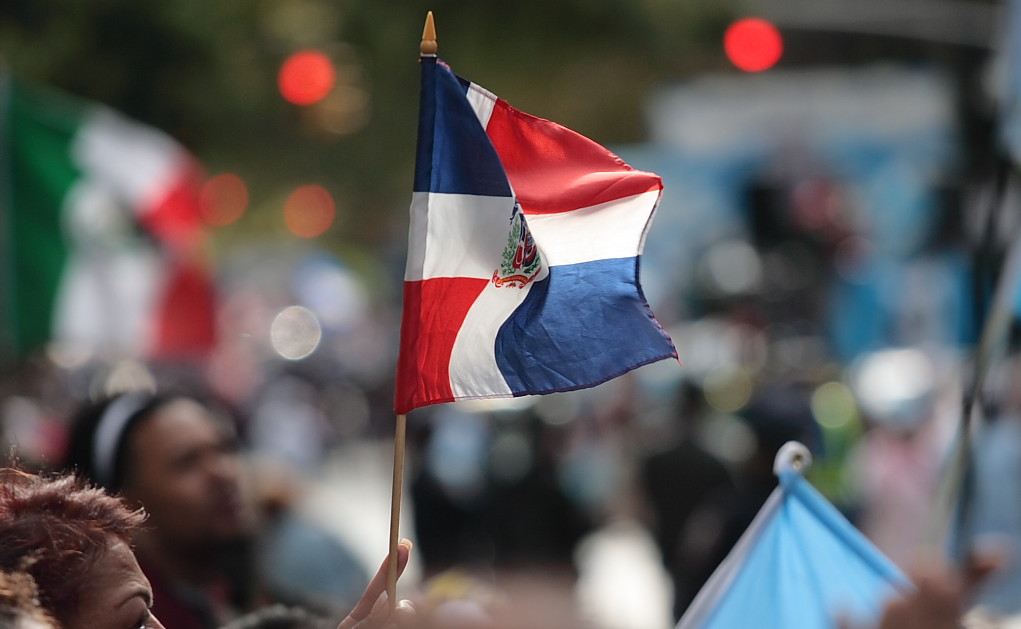These days, most politicians have put the government shutdown and health care reform above immigration reform in their list of concerns. Notably, the most recent news on immigration policy in the Americas does not come from the U.S., but rather from the Caribbean. Advocates of immigration reform across the world now have their eyes glued to the Dominican Republic, where a recent court decision has opened up a new theater of war between immigrants’ rights activists and anti-immigration conservatives.
On September 26th, the Dominican Republic’s Constitutional Court voted to annul the citizenship of all people born in the D.R. to illegal immigrant parents. According to an AP report, the Constitutional Court decision cannot be appealed, and applies to all children of illegal migrants born since 1929. In theory, this measure facilitates the enforcement of pre-existing laws on citizenship and naturalization. In practice, the top Dominican court has just legitimized the widespread and historically vitriolic racism the country holds towards Haitian immigrants.
Officially, the D.R. stopped bestowing automatic citizenship 2010, when the government passed a law stipulating that children born when their parents were “in transit” through the country would not be Dominicans by birth. The “in transit” label, originally reserved for people spending a maximum of a few weeks in Dominican territory, has now been altered to include all persons who entered the country illegally. Most of these are Haitians who, like Dominican immigrants in the U.S., left their homes and families behind in search of better jobs and livelihoods. Many were brought across the border to work in Dominican sugarcane fields during the early 19th century, not unlike the participants of American guest worker programs. Others would cross the border to find different work, but all became the target of widespread and systematic racism, which gained state sponsorship during the Trujillo dictatorship early in the 20th century.
Even after Trujillo’s death, the issue of Haitian immigrants in the D.R. continued to be a thorny one. However, this most recent manifestation of Dominican xenophobia has crossed a new threshold, and could lead to harmful consequences for the Latin American country. Critics argue that the new law does more to undermine government control over migrant populations than to prevent further illegal border crossings. Advocates argue that Haiti grants citizenship to descendants of Haitian citizens if they go through an application process, and thus the people affected by the law can always go back across the border. Not unlike American conservatives, many in the D.R. hope that this policy will lead to greater self-deportation.
What officials fail to acknowledge is that the decision mostly affects individuals who have always considered themselves Dominicans and often have no ties to their parents’ homeland. Those affected now find themselves stateless, with most decent educational and job opportunities closed to them. Prospects of receiving adequate health care are slim, and any applications for visas, passports and voter registrations will go unprocessed. Gaining Haitian citizenship requires time and money – resources that the predominantly poor Haitian-heritage community cannot spare. With nowhere to go and no bureaucratic value to their identity, thousands of people (in a country of 10 million) have been reduced to non-entities in the eyes of the government. Crime and health problems within Haitian communities will not be reported due to fears of deportation, and illicit economic activity will only grow with such a significant increase of demand and labor supply.
There are lessons that American anti-immigration advocates should learn from this blunder. The first is that disenfranchising and marginalizing such a large group of people in such a rash way can only create problems, not solve them. Dominicans will see crime, illicit trade and poverty increase because of this court decision, especially in large urban centers. The second is that automatic citizenship exists for a reason. People born and raised in a country that marginalizes them often have nowhere else to go. Undocumented migrants and their families are statistically more likely to be on the bottom rungs of the economic ladder. Most simply do not have the resources to change citizenship or move to another country even if they wanted to. As long as work opportunities exist for immigrant workers, they will keep coming regardless of xenophobic legislation. Both the U.S. and the D.R. profit immensely from the work of poor, often-abused foreign laborers, a reality which doesn’t seem to be changing anytime soon.
Illegal immigration, either in the U.S. or the D.R., is indeed a problem that demands attention, but often the most pervasive issues are also the most complicated. The mistakes of the Dominican Constitutional Court and their impending consequences should serve as a warning to other countries considering similarly rash measures. Beyond all the economic and political considerations, immigration is a human issue, and governments must not forget that the people they choose to push away will often face dire consequences in turn.
